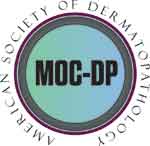American Board of Pathology CC Requirements

This document serves as an abbreviated summary of the American Board of Pathology (ABPath) Continuing Certification (CC) requirements. Continuing certification status is contingent upon meeting all CC requirements and reporting deadlines of the program. For comprehensive information about the ABPath CC requirements, please refer to the
CC Booklet of Information on the ABPath website.
OverviewAll CC requirements and deadlines are based on the year of enrollment in the CC program. Diplomates issued certificates after 1/1/2006 are automatically enrolled in the CC program. Diplomates with non-time limited (lifetime) certificates issued prior to 1/1/2006 may voluntarily enroll in the CC program at any time. Voluntary participation in the CC Program or ABPath CertLink© (ABPCL) will will not place lifetime certification in jeopardy.
A diplomate issued a primary certificate by ABPath (AP/CP, AP only, CP only, AP/NP, or AP/FP) after 1/1/2006 must maintain their primary certificate in order to maintain their ABPath subspecialty certification. If a diplomate holds primary certification with another ABMS board and an ABPath subspecialty certification, and that primary certification is no longer active, the subspecialty ABPath certification can be maintained by participation in ABPath’s CC Program. Diplomates with more than one certificate do not have separate CC Program deadlines per certificate. Requirements and deadlines are set by CC Program enrollment year. Diplomates are expected to remain current in the CC Program by satisfactorily completing all CC Program requirements and deadlines. Reporting requirements must be met every two years via electronic reporting form submission. If required, ongoing assessment with ABPath CertLink© (ABPCL), a continuous, online, longitudinal assessment that diplomates complete each quarter, must be completed.
CC Requirements and Policies Summary
Each diplomate in the CC Program is assessed an annual fee for administrative costs and maintenance of an electronic record of certification via PATHway. The annual fee is $150. The fee is per physician (not per certificate) and is paid electronically in PATHway. The annual fee will be assessed in February of each year. The annual fee must be paid in the year it is assessed.
Diplomates in the CC Program must meet reporting requirements every two years with the submission of a reporting form. A reporting form for a two-year period must be submitted by December 31st of every even or odd year to correspond with the year of CC Program enrollment in an even or odd year, respectively. The first two-year period begins the following January after CC Program enrollment. The reporting form has multiple parts:
- Part I: Professionalism and Professional Standing – This information must be reported to the ABPath every two years and includes details on medical licensure, substance abuse or impairments, medical staff privileges, description of practice, peer attestations/evaluations, and certification with other relevant boards.. For peer attestations/evaluations specifically, in the second two-year period after CC Program enrollment and every other period thereafter, each diplomate will be asked to provide the ABPath with the names and email addresses of two references who can attest to their ability and effectiveness in practice.
- Part II: Lifelong Learning – These requirements must be reported to the ABPath every two years. There are three ways to meet reporting requirements for Lifelong Learning: completing an ACGME-accredited fellowship, completing a Physician Scientist Research Pathway, or receiving and reporting 70 AMA PRA Category 1 CreditsTM, or AOA Category 1A CME Credits. Eighty percent of required CME must be directly related to the diplomate’s scope of practice. The remainder may be in areas of general relevance to medicine (e.g. ethics, practice management, informatics, etc.) The ABPath reserves the right to audit a diplomate’s CME data and require copies of CME certificates. Diplomates should retain documentation of CME activities for at least three years.
- Part III: Improvement in Health and Healthcare - This participation must be reported every two years. Each pathologist must participate in at least two PI/QA activities or programs per two-year period appropriate for their principal professional activities. An activity or program can only be reported once per year.
- Part IV: Assessment of Knowledge, Judgment, and Skills – This is an ongoing assessment. ABPath CertLink© (ABPCL) is a continuous, online, longitudinal assessment that diplomates complete each quarter (three months). A summative decision will be made every four or five years based on a diplomate’s CC Program enrollment year, and will evaluate ABPCL performance during the cycle. Diplomates in the CC Program must start completing ABPCL questions at the start of 2022 if they are not already. Diplomates are required to have a cumulative score of at least 60% by the end of a four-year assessment cycle.
Sources of CME
The ASDP offers a wide array of live end enduring activities that satisfy Part II: Lifelong Learning and Self-Assessment:
- Live activities:
- Online activities:
Updated 03/31/23